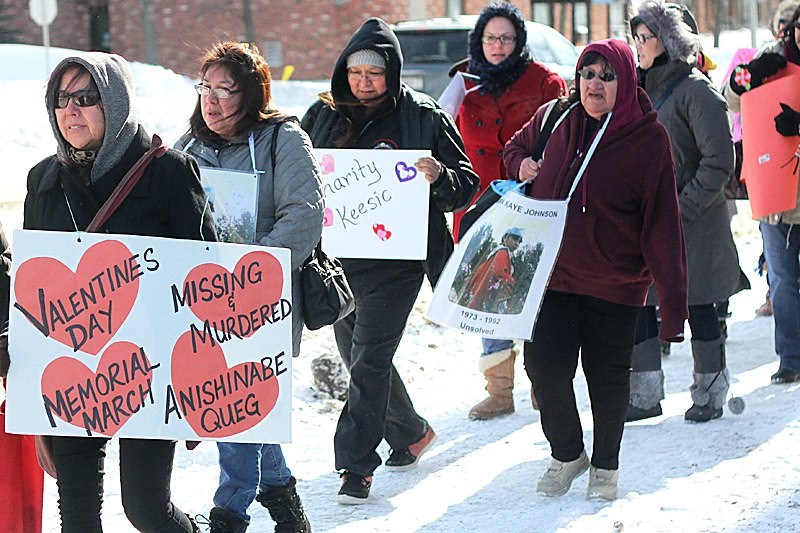Local leaders are adding their voices to a national call for action into the many cases of missing and murdered Aboriginal women.
Ontario Regional Chief Stan Beardy said it’s time for the federal government to explore what can be done to prevent violence against women and girls.
“We’re talking about 600 missing or murdered Native women. Those or somebody’s sister, daughter or mother and we want the government to look at those so we can deal with the issue,” Beardy said on Friday at the Valentine’s Day Memorial March to remember victims of violence against Aboriginal women.
“It’s a national shame if nothing is done about it. This is not a Native issue, it is Canadian society’s challenge to deal with it.”
Nishnawbe Aski Nation deputy grand chief Alvin Fiddler also voiced his support for a national inquiry in a media release.
On Thursday, the Native Women’s Association of Canada brought a petition to Ottawa’s Parliament Hill bearing 23,000 signatures requesting a formal inquiry into the cases of missing and murdered women.
That echoes a report from United Nations special rapporteur James Anaya, who voiced his support for a national inquiry when he visited Canada last year.
Thus far the federal government has rejected the calls for an inquiry.
Many of those participating in the walk agreed some form of action is necessary.
The march, which is in its sixth year, began at city hall shortly after noon and commenced down May Street and Memorial Avenue before concluding at the Lakehead Labour Centre.
Story continues after video...
Betty Achneepineskum works for Nishnawbe Aski legal services and was walking in memory of Candace Beardy, who was allegedly murdered by her spouse in January.
She said a lack of services means women are vulnerable, especially in domestic situations.
“For many of us living in remote communities we have fewer resources to protect victims of crime,” she said. “We don’t have shelters and at times there may only be one police officer in the community where there’s a population of 300 or more.”
Many of those who take part, such as Lise Dampier, are walking to remember somebody close to them who was a victim.
Dampier’s former co-worker, Rena Fox, was found murdered in 2003. The case remains unsolved.
The lack of closure and justice is one of the biggest struggles for the families. They find coming together with others is helpful.
“It’s healing and a therapy that makes everyone aware of the problem with the unsolved murders,” she said.
Beardy said it is important for families to make efforts to keep the spirit of friends and family going.
“The greatest worries one when you lose a loved one is to forget them,” Beardy said.
“I think when you have a memory walk like this with pictures continues to hold the memory alive and hope that justice will prevail and something will be done about it.”
